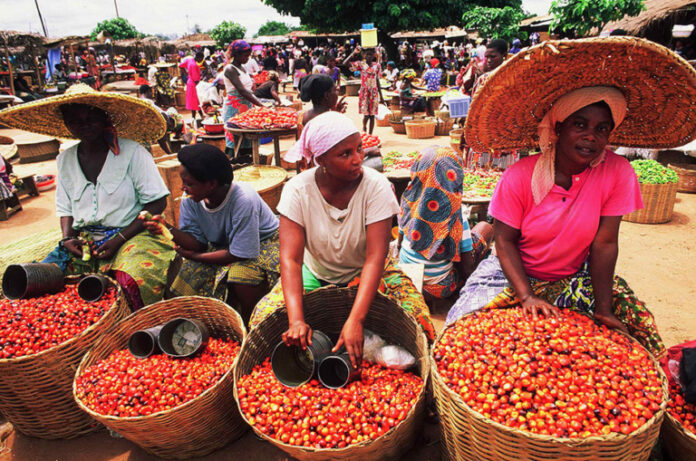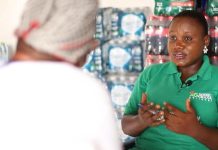The success of any country is dependent on the collective behaviour of the nation. Generally, the people’s work commitment, attitude, and hard work help determine their financial profile. However, it’s difficult to determine what should be the direction of efforts.
Here we present a secret recipe for leading Africa to an unmatchable success. This secret is, that African cities must be, Regionally Productive, Connected worldwide, and Self-reliant.
The development of any country is dependent on the production capacity and optimization of economic activities. This capacity needs to be aligned with modern infrastructure and be self-reliant in terms of resource utilization and foods production.
This model can be applied for Africa to develop. However, this approach is only effective when we collectively put in our efforts and ensure each step of the process is taken with due consideration. For Africa to develop, we need to rework our cities to enhance productivity in different aspects of human life.
Let’s understand how this productivity can be achieved and what practices need to be followed.
1. Regionally productive
We need to make Africa productive: productive in terms of economic stability; productive in terms of resource utilization; productive in terms of increasing exports and the GDP of the country.
Regionally productive refers to optimizing processes leading to higher output against limited input. It’s about creating an ecosystem that encourages skills, competence, integrity, and technological advancements in the country.
In simple words, we need to review how things are made in our country, the problems with the supply chain, the frictional forces leading to production losses, and how things can be controlled to ensure economic reforms. Further, productivity can be divided into two main parts: economic productivity and labour productivity.
Economic productivity is based on getting maximum output with limited input. It can be done via process optimization and efficient resource utilization. Process optimization means introducing some innovation/changes in the overall production process to ensure all controllable aspects are monitored and managed.
So, it aims to achieve production by incurring the least cost and not compromising the quality aspects of the product. This process aims to produce products at a low price, making them attractive to the international market. Hence, it’s expected to increase exports and durable economic stability. It’s equally important to note that durable economic stability cannot be achieved without exporting outside of the country.
The second component of productivity is labour initiatives. This refers to the efficiency of the labour to work and achieve optimal production levels. If labour is productive, more goods will be produced in a limited time. This can be achieved by implementing training, production reforms, technological advancements, and achievement of the learning curve to ensure long-term financial sustainability. A learning curve is when labour gets proficiency in the performance of the task. It helps ensure that the business gets desired productions in a limited time. Considering the demographics and energetic people of Africa, taking timely steps to train (re-skilling and up-skilling) our people can be an excellent step towards achieving a learning curve.
Further, a greater advantage of this efficient and effective labour management, is higher wages (leading to financial prosperity); lower product price(efficient production can lead to lower product costing); higher business profit (skilled labour is expected to improve product quality and enhance the business); and overall stronger economic growth.
Another perspective of being productive is the integration of the different industrial processes. For instance, for a successful export, the business needs to source materials, labour, processes, transportation, energy/fuel, competent staff, and comply with regulations and other aspects of running and effectively operating the business.
Process optimization is about managing operations so that the process is completed quickly with the least resource wastage. Likewise, there is a need to develop a strong mechanism for a transportation system, energy consumption, and regulatory reforms.
Regulatory reform is an area where African Governments have a massive role to play. Although, Ghana has a good rating in terms of starting a business and getting electricity which is 85 and 77 respectively, (statistica) however, there is a massive need to improve trading across borders and enforcing of contracts.
Trading across borders refers to procedural formalities for imports and exports. This metric is divided into three sub-categories: domestic transport, border compliance, and documentary compliance. The Government of Ghana needs to thoroughly work on these aspects to ensure ease of doing business.
Enforcing a contract refers to the cost and time required for resolving commercial disputes. There is a need to work on the quality of judicial processes and make the overall process effective and efficient.
So, taking steps in terms of business process optimization, economic stability, constructive infrastructure, improving judicial reforms, and import/export formalities is expected to bring productivity to the overall business environment of Africa.
A good idea can be to start by developing some model city where all such facilities are provided to the business. From time to time, such initiatives can be spread across the country. So, to make Africa productive, we need to enhance productivity of our cities. Ideally, the test city would need to have several coherent similarities with many other African cities to allow for the most learning and interactions that can more easily be replicated across the continent.
2. Worldwide connectivity
Worldwide connectivity is the basis of the country’s international trade and export performance. If routes and connections of the country with an international market are strong, it leads to higher exports and higher GDP.
There are two aspects of looking at worldwide connectivity. The first is the logistics perspective, and the second is international affiliation and trading associations. The logistics perspective refers to how businesses can streamline overall supply chain management. It includes order handling, managing production, inventory management, packaging, storing, and efficiently dealing with the process of exports clearance.
For export clearance, there is a need to maintain a standard of procedural compliance as a protocol for the shipping companies and compliance with an international trade norm.
From a logistics perspective, 38 out of 54 states in Africa have a coastal region with the ability to trade with the world directly. This region has over a hundred operational ports that facilitate around 6% of the global cargo services. Further, there are seven critical ports in Africa: Durban, Mombasa, Djibouti, Lagos, Abidjan, Suez Canal, and Tangier. These ports play a crucial role in trading activities. (fahamu)
However, the problem is that Africa has only 2 percent of all world trade. This number is very small, especially considering this region has tremendous natural resources globally. These resources include gold, diamond, oil, agricultural products like tea, coffee, cocoa, etc. Further, the quality of these products is remarkable which means there is soft space for expanding on the exports. (ustr)
Even if Africa can increase exports by only 1% (from 2% to 3% of the global trade), it would bring an additional $70 billion in annual revenue which is three times more than the total funds Africa gets under development assistance from the world. So, Africa does not have the problem of logistics , but rather, initiatives to sell abroad.
The second factor of worldwide connectivity/exports expansion is affiliation with the trading associations. Africa is part of the different national and international trade organizations like Association of trade promotions, organization and trade point Tanzania, Trade point Pretoria, Ghana Export Promotion Council etc. However, still, there is a need to do more and find customers abroad. Likewise, other aspects of trade enhancement can be increasing trade between African countries. It would lead to an overall increase in economic/trading activities.
Further, increasing exports lead to managing different aspects of the country that include a balance of payments, level of the national reserves, stability of the currency, and overall financial enhancements.
Hence, worldwide connectivity can add to the enhancement of a country’s development. However, we need to connect our cities globally.
3. Self-reliance
Self-reliance refers to the quality of having sufficient food and other needs to pass life. In other words, the country is self-reliant when it’s capable of fulfilling the food needs of its people.
In fact, undernourishment and food shortage is the top problem for African countries. This problem is so severe that it impacts the generation’s overall dietary requirements and nourishment. Self-reliance is measured by SSR- Self-sufficiency ratio.
Countries around the globe seek to enhance SSR and ensure the food security of the people. Generally, it’s a top priority for Governments around the globe. However, in recent times, unfortunately, the SSR for Africa has decreased from 1 to 0.8. It means the Government could not sustain internal production for the foods and diet; rather, the country has had to import the foods to narrow the gap between demand and supply. (springer)
Further, increasing the country’s GDP leads to an increase in the consumption of foods as people opt for diverse foods. Although Africa has sufficient resources in terms of soil and nutrients, there is a problem with being self-reliant. Hence, there is a strong need to emphasize on this.
Conclusion
If a country aims to develop, it needs to focus on developing its cities and the quality of people’s lives. It can be done in three steps: making the cities regionally productive, implementing worldwide connectivity, and ensuring self-reliance in terms of food.
Regionally productive refers to increasing the productivity of your businesses. It’s about increasing industrial output leading to higher exports and higher GDP. Productivity is strongly connected with economic stability, labour efficiency and the achievement of quality production using limited resources.
Secondly, we need to comprehensively connect our cities with the globe. It’s one of the important steps for marketing and product visualization.
Likewise, the country needs to be self-reliant in terms of food production. Unfortunately, Africa still needs to import foods to fulfil its needs and the SSR – self-sufficiency ratio has decreased in recent times. So, there is a strong need to focus on initiatives that make Africa independent.
I hope you enjoyed the read. Hit me up and let’s keep the conversation going! I read all the feedback you send. Also, feel free to throw at me topics you’d like to read or hear my thoughts on. You can always head to my Calendly to schedule a quick chat by going to calendly.com/maxwellampong. Or connect with me your own way through my Linktree: https://linktr.ee/themax.
These are all facts. And this has been an opinion piece.
Have a blessed week!
♕ —- ♕ —- ♕ —- ♕ —- ♕ —- ♕ —- ♕ —- ♕ —- ♕
References
fahamu. (n.d.). http://www.fahamu.org/ep_articles/africas-biggest-shipping-ports/.
springer. (n.d.). https://link.springer.com/article/10.1007/s12571-013-0260-1#Sec1.
statistica. (n.d.). https://www.statista.com/statistics/1244167/ease-of-doing-business-in-ghana-by-topic/.
ustr. (n.d.). https://ustr.gov/about-us/policy-offices/press-office/blog/trade-key-africa%E2%80%99s-economic-growth.












































